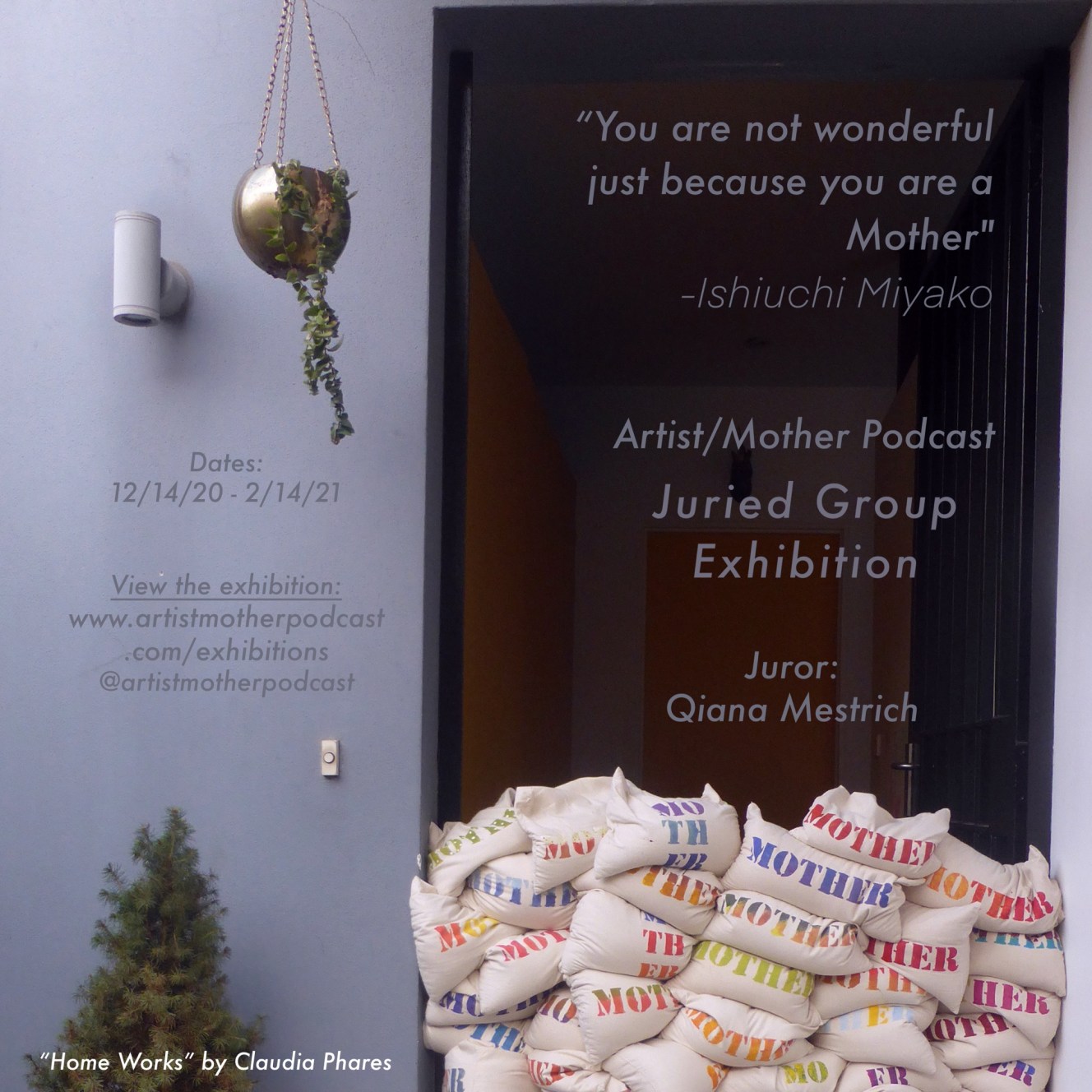︎“You are not wonderful just because you are a Mother.” Group Exhibition curated by Qiana Mestrich

Artist/Mother Podcast Juried Exhibition
Exhibition dates: December 14th, 2020 – February 14th, 2021
Juror’s Statement
UNWONDERFUL MOTHER
Curatorial Statement by Qiana Mestrich
“My mother was the woman who was closest to me. We were both women. My mother gave birth to me, but I haven’t had any children. The mother is evidently the person who creates the next generation. But there are women who don’t get children, just like me. I think the idea of the mother is far too strong. It is as if you are not a woman unless you are a mother. I am slightly opposed to that. You are not wonderful just because you are a mother.”
– Ishiuchi Miyako quote from March 2020 video interview by Mette Holm in her home in Kiryu, Japan for the Louisiana Channel, Louisiana Museum of Modern Art, 2020
These words Ishiuchi Miyako uses to emphasize the complicated relationship with her mother that informed the photographic series and book she is best known for, Mother’s (2000-2005). It would be oversimplified to read Miyako’s statement as personal contempt for her own mother. Alternately, we can interpret her words and photographic artwork as a quiet outrage against the social and cultural norms that have long dictated a woman’s value to, and status in, the world based on the labor of her uterus.
Artists are always engaged in non-verbal conversations and those featured here have made works for, and in response to, a multitude of audiences. These audiences include childless women, grieving widows, lonely children, lost babies, reluctant mothers, traumatized inner childs, postpartum bodies, dedicated caregivers, judgmental strangers, aging parents, opinionated family members and their creative selves, among others.
Physical proximity is a recurring theme in many of the works in this exhibition, as we see its effects (or absence) play across space, time or relationship(s). To quote artist Leslie Ann McQuaide, “The Universe continues to request many things from women.” Throughout this COVID-19 pandemic, these requests have become nonnegotiable demands encompassing domestic housework, healthcare, frontline service work, emotional support, remote digital labor and homeschooling, to name a few. For many during this year’s lockdown, nearness to family has made artmaking more urgent as a way to process this time.
Using various mediums, forms and aesthetics, the artists in this exhibition are together with Ishiuchi Miyako in this ever unfinished conversation. It is a conversation that goes beyond the charged argument of children vs. no children and reveals many unique relationships to and representations of the (sometimes unwonderful) “idea of the mother.”